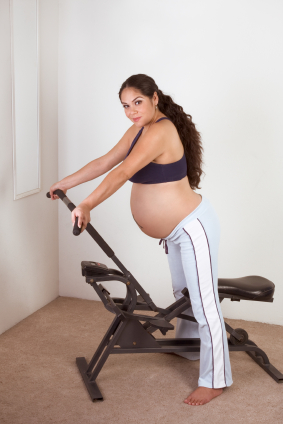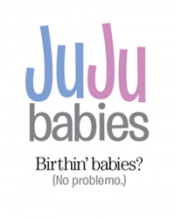
 Before you begin an exercise program during pregnancy, it is really important to have an obstetrical medical evaluation to be sure you have no health risks that could compromise you or your baby during moderate exercise.
Before you begin an exercise program during pregnancy, it is really important to have an obstetrical medical evaluation to be sure you have no health risks that could compromise you or your baby during moderate exercise.
When your health care provider (HCP) has determined that you can safely take part in a perinatal fitness program, it is best to look for a program designed for pregnant women. Look for an instructor who has had advanced training or certification in perinatal fitness.
Training the pregnant woman requires a different skill set than training a non-pregnant woman. There are risk factors specific to pregnancy that the instructor should be aware of and trained to detect. The training regimen for a pregnant woman will change as her pregnancy progresses.
Perinatal fitness programs should contain the following:
An initial warm-up period to prepare the muscles and joints for exercise. During pregnancy, the hormone relaxin increases the elasticity of connective tissues in the body. That means the connective tissues stretch more easily. Relaxin levels increase daily throughout pregnancy, so the connective tissue and joints become more vulnerable to injury. Issues with balance can also lead to accidental overstretching of the connective tissues.
Cardiovascular conditioning. This is an important part of perinatal fitness, as the heart and lungs need to be conditioned to increase endurance and maintain strength for labor and birth.
Resistance training. This is basically muscle strengthening exercises. Resistance training can incorporate stability balls, elastic bands, dumbbells and other methods to increase muscle strength. Having strong muscles helps stabilize the joints, which is very important in pregnancy to prevent injury.
A cool down period. It is important to stretch the muscles after exercise to help prevent muscle injury and to slowly bring the heart and lung function back to a normal maintenance level.
Relaxation. Learning how to relax your body and release tension is a vital and valuable technique that will help relieve emotional and physical stress. Relaxation also provides safe pain relief during uncomfortable medical procedures and labor.
Education and discussion. Pregnant and postpartum women benefit from having a time to bring up questions and concerns that relate to their health. A qualified instructor can answer many of those questions or direct the woman to someone who can provide answers.


